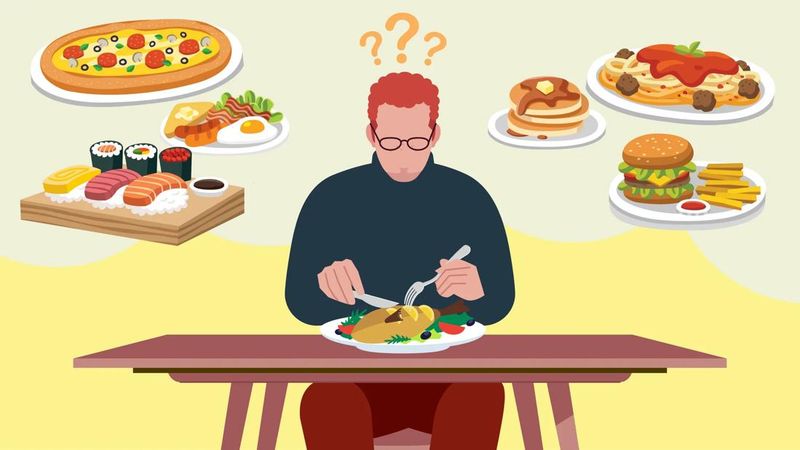When everyday behaviors mask deeper struggles, it can be challenging to recognize the signs of someone in survival mode. Chronic stress and emotional burnout can manifest in subtle ways, often misinterpreted or overlooked by others.
Here, we explore 17 subtle warning signs that indicate someone might be in survival mode, according to research. By understanding these signals, we can offer empathy and support to those who need it most.
1. Constant Fatigue without Sleep
Fatigue can be overwhelming, yet the irony is that even exhaustion doesn’t guarantee sleep. Many find solace in the quiet of the night, a stark contrast to the chaos within. As morning light approaches, rest remains elusive, leaving a heavy cloud of tiredness.
For those in survival mode, sleep is neither a refuge nor a friend, but a distant memory. Sleepless nights blend into weary days, each promising rest that never arrives.
The cycle continues, feeding into the very stress that keeps sleep at bay. Rest becomes a luxury, not a necessity, as the body fights to stay alert, despite its desperate cries for rest.
2. Flat Emotions during Joyful Moments
In a world filled with vibrant colors, emotions can feel muted. Joyful occasions lose their luster, overshadowed by a pervasive numbness. Smiles become a performance rather than a reflection of true feelings.
For those in survival mode, emotional flatness emerges even among celebration. The heart remains untouched, veiled by an invisible wall that keeps happiness at bay.
While others revel in joy, they stand apart, spectators in their own lives. This disconnect can be isolating, separating them from the warmth of shared moments. It’s not a lack of desire to feel but an inability to break through the fog.
3. Simple Decisions Become Overwhelming
A simple choice, like picking out cereal, transforms into a daunting task. Decision-making becomes a battleground, where even trivial choices feel overwhelming.
For those in survival mode, every decision carries the weight of the world. The brain, weary from stress, struggles to process options, leaving them paralyzed with indecision.
This paralysis is not a sign of apathy but a response to chronic stress. The mind, once agile, becomes bogged down by the simplest of tasks, reflecting the inner turmoil that rages beneath the surface.
4. Urgency in Every Small Task
When everything feels urgent, even the mundane takes on monumental importance. The pressure mounts, making it difficult to discern what truly requires immediate attention.
In survival mode, the sense of urgency is a constant companion. Every task, no matter how small, is infused with anxiety that demands swift action.
This relentless pace is exhausting, draining energy and focus. The mind is trapped in a state of hyper-vigilance, always bracing for the next crisis, whether real or imagined.
5. Pérdida de interés por las aficiones
Hobbies that once sparked joy now gather dust, forgotten in the shadow of survival. The passion that fueled creativity fades, leaving behind a lingering sense of loss.
For those in survival mode, the once-vibrant activities become burdensome. The drive to create or engage dissipates, swallowed by the demands of just getting through the day.
This detachment is not a lack of interest but an emotional retreat, a means of conserving energy when reserves run low. The heart longs to reengage, yet survival dictates otherwise.
6. Impatience over Minor Issues
Patience, once abundant, evaporates over trivial matters. Minor inconveniences spark irritation, revealing underlying stress that simmers beneath the surface.
In survival mode, patience becomes a scarce commodity. Small issues ignite disproportionate responses, fueled by exhaustion and frustration.
This heightened reactivity is not reflective of character but of a mind stretched to its limits. The struggle to maintain composure is real, as stress steals the ability to respond with calm and understanding.
7. Overly Apologetic without Cause
Apologies flow freely, even when unwarranted. The impulse to apologize stems from a deep-seated fear of causing inconvenience or harm.
For those in survival mode, saying sorry becomes second nature. It’s a reflexive act, born from a desire to avoid conflict and placate others.
This behavior is not about fault but about seeking peace in a world that feels unstable. The need to apologize reflects an internal struggle to maintain harmony amidst chaos, often leading to unnecessary self-blame.
8. Exhaustion with Small Talk
Small talk becomes a Herculean effort, draining energy that’s already in short supply. The chatter that once animated can now feel like an overwhelming task.
For those in survival mode, engaging in casual conversation feels burdensome. It’s not a lack of interest in others, but a fatigue that makes every word feel heavy.
The desire to connect remains, yet the energy to do so is fleeting. Social interactions, once revitalizing, become energy-depleting, leaving them craving solitude and silence.
9. Avoidance of Invitations
Invitation after invitation is declined, not out of disinterest but from a need to retreat from the world. Social gatherings feel like mountains, too formidable to climb.
In survival mode, the preference for solitude outweighs the call of social connections. The idea of engaging feels overwhelming, prompting withdrawal into the comfort of familiar surroundings.
This avoidance is not a rejection of others but a self-preservation tactic, conserving energy for the demands of daily life. The heart may yearn for companionship, yet the body insists on rest.
10. Erratic Eating Patterns
Normal eating patterns become unpredictable, swinging between extremes. Meals are skipped or consumed in excess without regard to hunger cues.
For those in survival mode, food becomes both a comfort and an afterthought. Stress disrupts the natural rhythm, leading to impulsive decisions around eating.
This erratic pattern reflects the internal chaos, as the body seeks balance amidst turmoil. Food loses its role as nourishment, becoming a tool for coping or a task to forget.
11. Being Easily Startled or Overwhelmed
A sudden noise, a quick movement—these become jarring, setting the heart racing. The startle response is heightened, a reflection of an overactive alarm system.
In survival mode, the senses are on high alert, primed to detect threats, whether present or not. It’s a response rooted in the body’s instinct to protect, going into overdrive.
This constant vigilance is exhausting, wearing down the mind and body. The world feels like a minefield, where peace is elusive, and calm is a rare visitor.
12. Discomfort with Silence
Silence, once a refuge, becomes unsettling. The absence of noise leaves room for thoughts that are better left unspoken.
For those in survival mode, silence is not peaceful but filled with tension. The mind races in the quiet, amplifying worries and fears that thrive in stillness.
This discomfort is not born from a dislike of quiet but from the mental turmoil that fills the void. The struggle is to find calm within, despite the chaos that silence can reveal.
13. Feeling Disconnected from Body
The body feels foreign, as if it doesn’t belong. Movements are automatic, disconnected from conscious thought and emotional presence.
In survival mode, a sense of disconnection arises, separating mind from body. This detachment is a survival mechanism, a way to cope with overwhelming stress.
The physical self becomes an afterthought, as the mind grapples with emotional burdens. This disconnection is not a choice but an adaptation, a means of navigating a reality that feels too overwhelming to fully engage with.
14. Difficulty Asking for Help
The act of reaching out for help feels monumental, a mountain too steep to climb. The words catch in the throat, swallowed by pride or fear.
For those in survival mode, asking for help is fraught with challenges. It’s not a lack of need but a struggle with vulnerability and trust.
The fear of burdening others or appearing weak casts a long shadow, making self-reliance the default. Yet beneath the surface, the need for compassion and understanding quietly calls out.
15. Overemphasis on Being Useful
The need to be useful becomes an all-consuming drive. Every action is measured by its utility, feeding into a relentless pursuit of validation through productivity.
In survival mode, self-worth is tethered to usefulness. The drive to contribute overshadows personal well-being, leaving little room for rest or reflection.
This fixation is not about ambition but about seeking security and value through action. The desire to be needed and appreciated dictates choices, even at personal cost.
16. Uncomfortableness with Compliments
Compliments, though kind, feel undeserved. Praise becomes uncomfortable, a spotlight revealing perceived inadequacies.
For those in survival mode, accepting compliments is challenging. The internal narrative often clashes with external validation, creating discomfort.
This reaction is not about modesty but about struggling with self-esteem and self-image. The kind words feel foreign, clashing with a deeply held belief of not being enough. Gratitude mingles with unease, as the mind wrestles with acceptance.
17. Inability to Feel Safe in Calm Environments
Calm environments are paradoxically unsettling. The absence of chaos doesn’t equate to peace but triggers a wary vigilance.
In survival mode, safety is a fleeting illusion. The mind remains on high alert, prepared for threats that may never come.
This restlessness is rooted in past experiences, where calm preceded storm. The struggle lies in trusting tranquility, allowing oneself to truly relax, and let go of the ever-present guard.


















